
Duérmete, Mi Niño
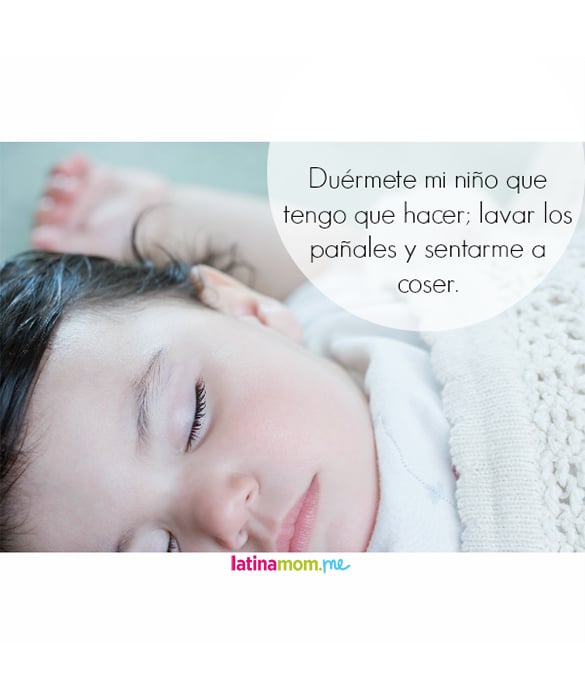
It's bedtime for baby but she won't fall asleep. What can you do? Hold her in your arms and sing her a lullaby. Here are ten lullabies, also known as "arrullos," "canciones de cuna," and "nanas."
Up first we have, "Duérmete, Mi Niño." As with many lullabies, there are different versions; In this version the mother tells the child to sleep so she can wash the diapers and do her sewing.
A La Nanita, Nana
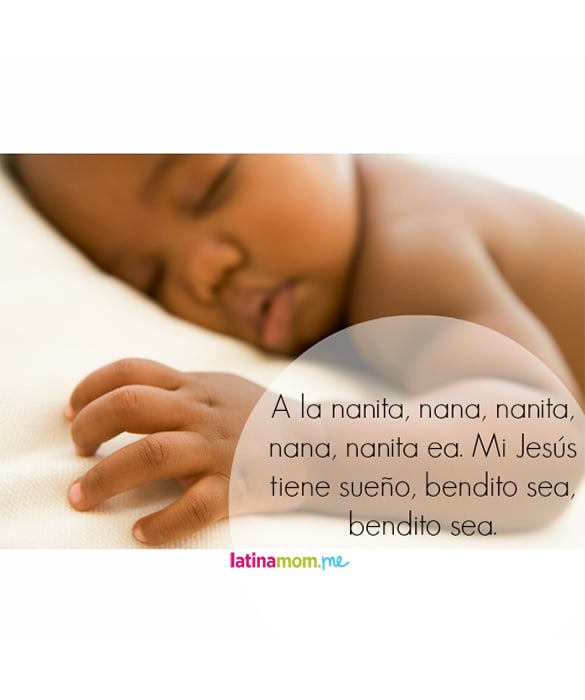
This Christmas carol which seems to have Arab influences like "Los Peces en El Río," is sung for baby Jesus but became a popular lullaby throughout Latin America. Some believe it originated from 18th Century Spain, while others claim the composer was of Ecuadorian origin. A modern version of "A La Nanita, Nana" changes the "mi Jesús" to "mi niña."
El Muñeco Pin Pón
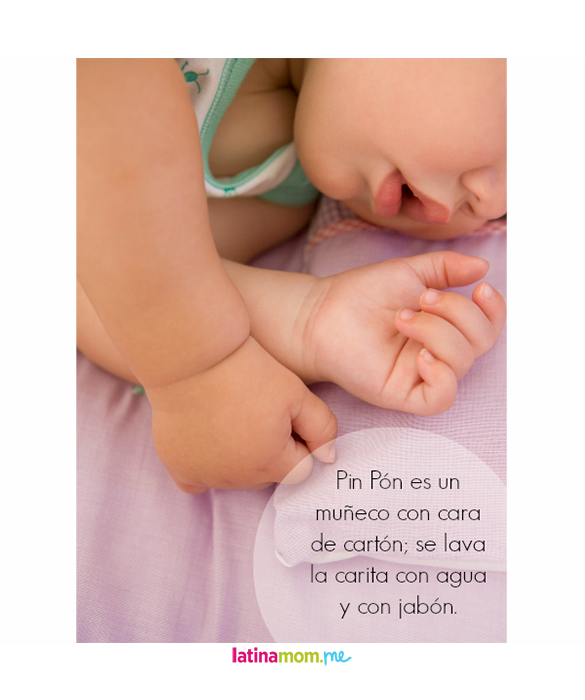
This playful song describes a doll made of cardboard who washes his face with soap and water. In various versions, the words are slightly different. The first line can also be sung, "Pin Pón es un muñeco, muy guapo y de cartón," "Pin Pón es un muñeco muy grande y de cartón" or "Pin Pón es un muñeco con manos de cartón."
Los Pollitos Dicen

Perhaps one of the most famous children's songs in Spanish, "Los Pollitos Dicen" tells the story of baby chicks who chirp when they're hungry or cold and the mother hen who feeds them and warms them up before putting them to bed.
Luna Lunera
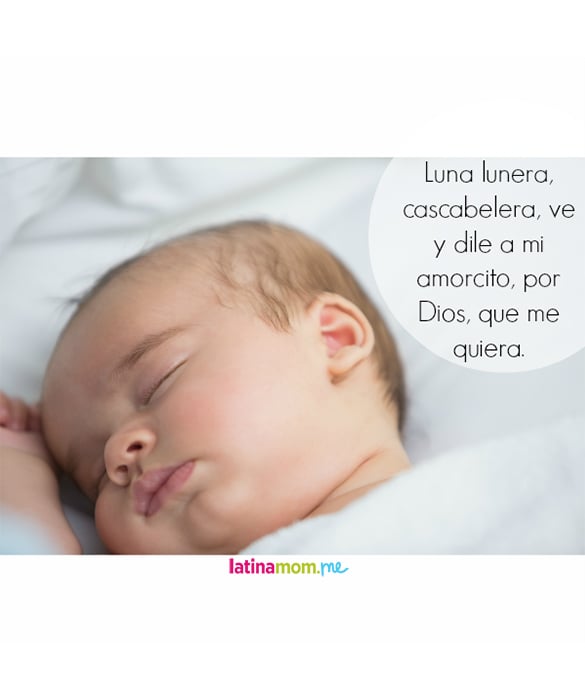
The singer of this song beseeches the moon to tell her sweetheart to love her. Luna Lunera has been interpreted by many music groups including Eydie Gorme y Los Panchos, Angela Maria, and Soledad Pastorutti accompanied by Los Palmeras.
Esta Niña Linda
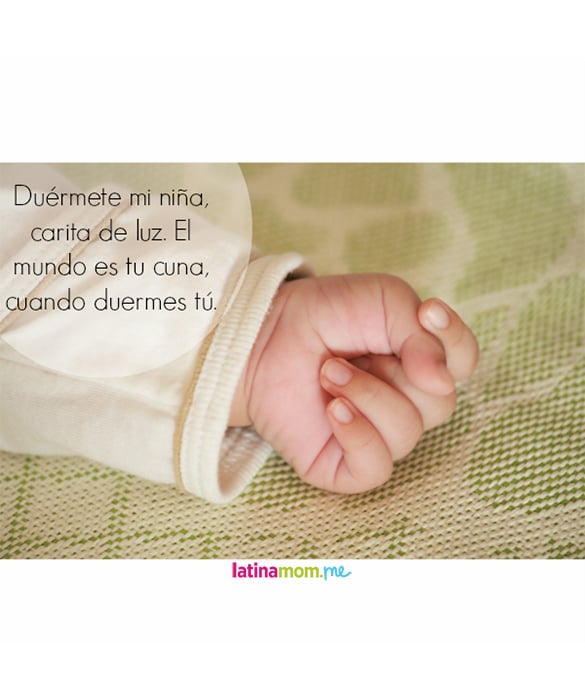
This sweet song asks the baby girl to close her eyes, promising, "the world is your crib when you sleep."
See this song's full lyrics and sheet music in the book, "Arrorró, Mi Niño" by Lulu Delacre.
Mi Niña Arrurrú
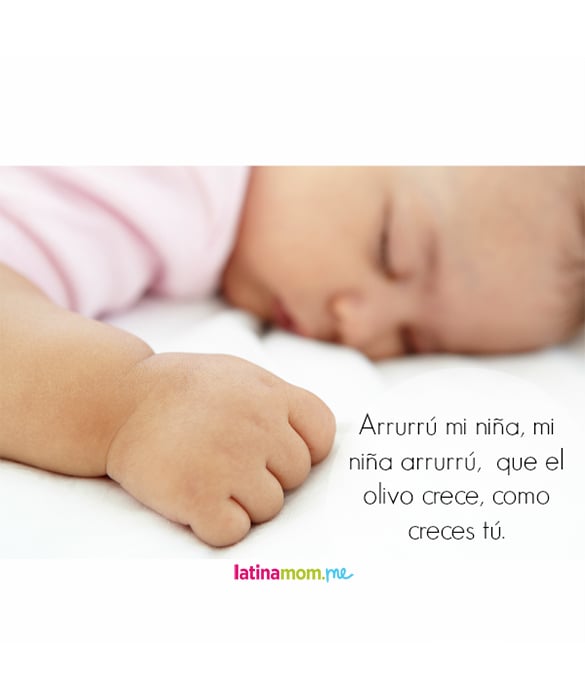
The creative yet soothing lyrics of this song by María de la Luz Uribe are wonderfully accompanied by an equally creative video by Chilean children's show TikiTiklip.
Arrorro Mi Niño
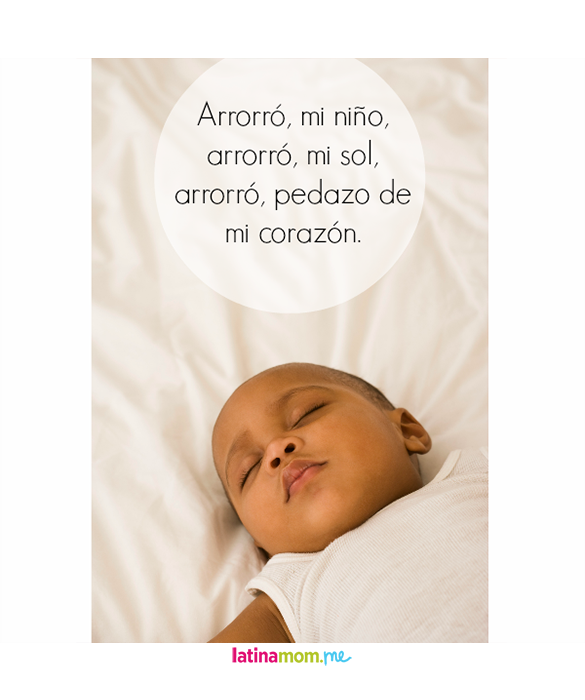
The onomatopoeic sound of the word "arrorró" is meant to soothe the baby asleep, that's why you see it repeated in so many lullabies. In "Arrorró Mi Niño" the child is sweetly called, "my sun" and "piece of my heart." Spanish terms of endearment are so very nice, aren't they?
Cielito Lindo
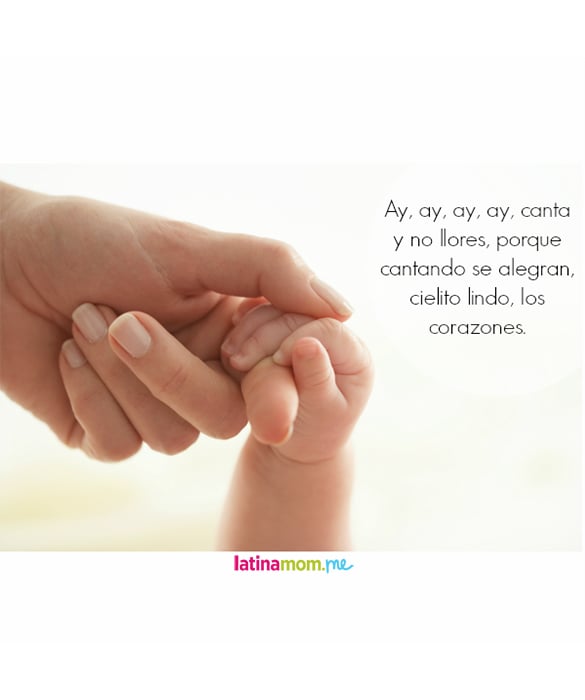
"Cielito Lindo" probably needs no introduction. This traditional Mexican love song was written in 1882 and is often referred to as Mexico's unofficial national anthem; It is equally sung by mariachi, by crowds at soccer games, and by parents to children.
Qué Linda Manita
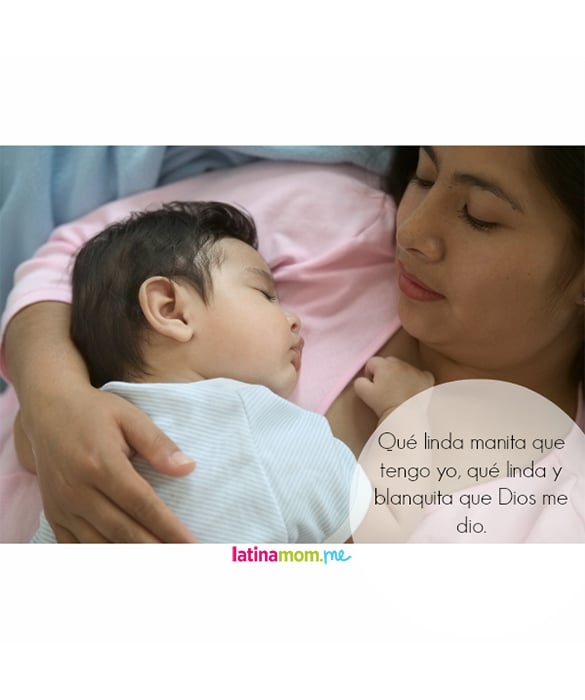
This traditional song can be heard in a scene from the film "Paris je t'aime," sung by actress Catalina Sandino Moreno. The lullaby is sung from the perspective of the baby and praises all the lovely body parts—hands, eyes, mouth, feet—given to the baby from God.




